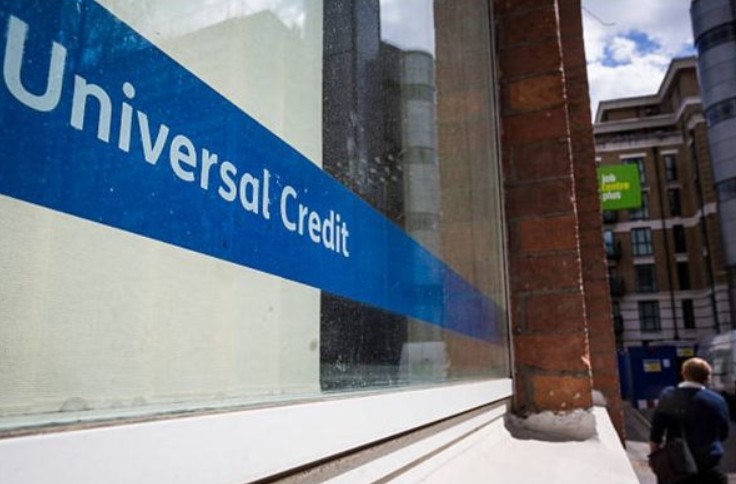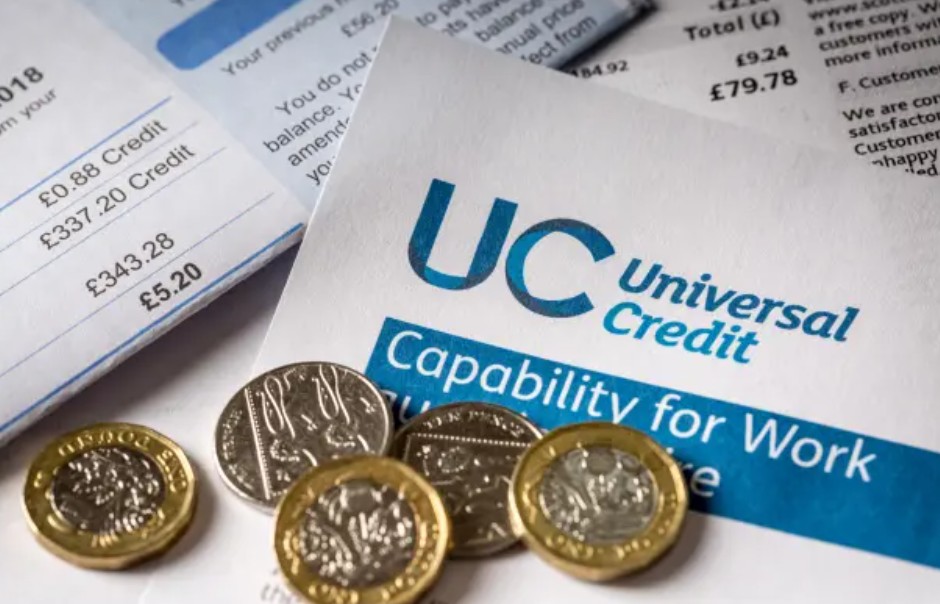If you’re earning around £1,000 a month and wondering how much Universal Credit you will get, you are asking a very common and important question that affects thousands of people across the UK. Universal Credit is designed to help people on low incomes or out of work with their living costs, but its rules and calculations can sometimes be confusing.
This detailed guide will explain exactly how Universal Credit works alongside your earnings, what factors influence your payment, and help you understand how much Universal Credit will i get if i earn £1000 a month. Whether you are working part-time, self-employed, or just starting to work after a period of unemployment, this information will help you make sense of your finances.
What is Universal Credit?

Universal Credit (UC) is a government benefit introduced to simplify the welfare system in the UK. It combines six previous benefits and tax credits — including Jobseeker’s Allowance, Housing Benefit, and Child Tax Credit — into one monthly payment. Universal Credit aims to provide financial support for people with low or no income, help with rent or housing costs, and encourage people to work by tapering off benefits gradually as earnings increase.
Universal Credit is paid monthly and is intended to cover basic living expenses like food, bills, rent, and other costs.
How Universal Credit Works With Your Earnings?
Universal Credit is a means-tested benefit, which means the amount you receive depends on your income and personal circumstances. If you are working and earning money, your Universal Credit payment will reduce as your income increases. This approach ensures that working more always pays off — you won’t lose all your benefits at once, but your UC will reduce by a set rate as you earn more.
The Taper Rate: What Is It?
The taper rate is the rate at which your Universal Credit reduces as your income goes up. Currently, for every £1 you earn above your work allowance, your Universal Credit is reduced by 55p. This means you keep 45p of every extra £1 you earn, encouraging people to work by ensuring that increased income doesn’t get clawed back completely.
What Is the Work Allowance?
If you have children or a disability, you may be eligible for a work allowance. This allowance is an amount you can earn before your Universal Credit starts to reduce.
- If you pay rent, the work allowance is £628 per month (from April 2024).
- If you do not pay rent, the work allowance is £373 per month.
If you do not have children or a disability, you do not get a work allowance, and your Universal Credit reduces immediately on your first pound earned.
How Much Universal Credit Will I Get If I Earn £1000 a Month?
Let’s explore the possible Universal Credit payments for someone earning £1,000 a month, based on different household situations.
Scenario 1: No Children or Disability (No Work Allowance)
If you don’t have children or a disability, you won’t receive a work allowance. That means your Universal Credit reduces by 55p for every £1 you earn, starting from £0.
- Earnings: £1,000
- Work allowance: £0
- Earnings over allowance: £1,000
- Reduction: £1,000 × 0.55 = £550
If your standard Universal Credit allowance is about £800, your payment after reduction would be:
£800 – £550 = £250
You would receive £250 in Universal Credit, plus your £1,000 income, making your total monthly income £1,250.
Scenario 2: With Children or Disability (Work Allowance Applies, Paying Rent)
If you have children or a disability, and you pay rent, your work allowance is £628 per month.
- Earnings: £1,000
- Work allowance: £628
- Earnings above allowance: £1,000 – £628 = £372
- Reduction: £372 × 0.55 = £204.60
If your standard Universal Credit amount is £800, after the reduction:
£800 – £204.60 = £595.40
Your total monthly income would be £1,000 + £595.40 = £1,595.40.
Scenario 3: With Children or Disability (Work Allowance Applies, Not Paying Rent)
If you have children or disability but don’t pay rent, your work allowance is £373 per month.
- Earnings: £1,000
- Work allowance: £373
- Earnings above allowance: £627
- Reduction: £627 × 0.55 = £344.85
If your standard Universal Credit is £800, after reduction:
£800 – £344.85 = £455.15
Your total income would be £1,000 + £455.15 = £1,455.15.
Other Important Factors Affecting Your Universal Credit Payment

Housing Costs
If you pay rent or mortgage interest, Universal Credit includes a housing element to help cover these costs. This amount can significantly increase your monthly payment and depends on your rent amount and location. It’s important to include your housing costs when you apply for Universal Credit.
Number of Children and Dependents
Universal Credit includes extra amounts for children and young people. The more children you have, the higher your Universal Credit payment will be. There are also additional amounts for disabled children.
Disability and Health Conditions
If you or your partner has disabilities or long-term health conditions that affect your ability to work, Universal Credit provides extra support through disability premiums. These increase your overall entitlement.
Savings and Capital
If you have savings over £6,000, your Universal Credit payment will reduce. For every £250 over £6,000, your payment reduces by £4.35 per month. If your savings exceed £16,000, you cannot claim Universal Credit.
Partner’s Income and Circumstances
If you live with a partner, their income, savings, and circumstances are included in your claim and affect the total amount of Universal Credit you receive.
How to Calculate Your Universal Credit Payment Precisely?
While these examples give a good idea, the exact amount you receive depends on your detailed personal circumstances. To get an accurate estimate:
- Use the official Universal Credit calculator at gov.uk
- Speak to local welfare or benefits advisors
- Use free online benefits calculators provided by Citizens Advice or Turn2Us
How Often Does Universal Credit Adjust?
Universal Credit payments are recalculated monthly, based on the income you report for each assessment period. You must report your earnings promptly and accurately through your online Universal Credit account. If your income varies from month to month (for example, if you work part-time or are self-employed), your payment will adjust accordingly, providing a flexible benefit that adapts to your circumstances.
What Happens If Your Income Changes?

Universal Credit is designed to respond flexibly to changes in income:
- If your earnings increase beyond £1,000 a month, your Universal Credit payment will reduce further, but you’ll still retain some benefit until your income fully covers your living costs.
- If your earnings fall below £1,000, your Universal Credit payment will increase, helping you manage through periods of lower income.
- If you lose your job, your Universal Credit can increase to support you until you find new work.
Tips to Maximise Your Universal Credit and Manage Your Finances
- Understand Your Work Allowance: Knowing if you qualify for a work allowance can help you plan your income and work hours to maximise your benefits.
- Report Earnings Accurately and On Time: Always submit your income information promptly to avoid overpayments or sanctions.
- Claim Housing Costs: Ensure your rent or eligible housing costs are included in your Universal Credit claim.
- Seek Local Advice: Local charities, Citizens Advice, or welfare rights groups can offer free, confidential advice to help you navigate Universal Credit.
- Keep Records: Keep payslips, bank statements, and any documents related to your income and expenses to support your claim if needed.
- Use Benefit Calculators: Online calculators can help you understand how changes in earnings or circumstances will affect your entitlement.
Final Thoughts: Is £1,000 a Month Compatible With Receiving Universal Credit?
Earning £1,000 a month means you are likely to receive some Universal Credit, but how much depends heavily on your circumstances. If you have children, pay rent, or have disabilities, your Universal Credit payment will be higher than someone without these factors.
Universal Credit is designed to top up your earnings and smooth out fluctuations in income, so you can work without losing all your financial support. Knowing how your income affects your benefits helps you plan better and avoid surprises.
Common Questions About Universal Credit and £1,000 Earnings
Will I lose all my Universal Credit if I earn £1,000 a month?
No. Your Universal Credit reduces gradually with earnings, so you will keep part of your benefit alongside your income.
Can I claim Universal Credit if I’m self-employed and earn £1,000 a month?
Yes. Self-employed earnings are assessed similarly, but based on your profits after expenses. The “minimum income floor” rules may apply if your income is unstable.
How does Universal Credit affect taxes?
Universal Credit payments are not taxable, but your earnings are subject to income tax and National Insurance contributions.
Can my partner’s income affect my Universal Credit?
Yes, if you live with a partner, their income and savings affect your overall Universal Credit payment.

Leave a Reply